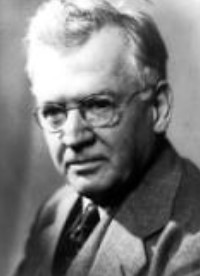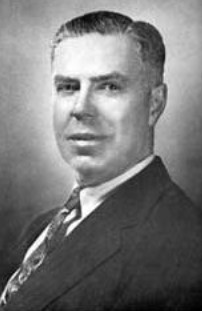 “那些因反美国二战政策而突然销声匿迹的著名学者们”《为什么你所知晓的第二次世界大战都是错的》(二)
“那些因反美国二战政策而突然销声匿迹的著名学者们”《为什么你所知晓的第二次世界大战都是错的》(二)
Why Everything You Know About World War II Is Wrong
译文简介
欧文是许多关于战争的重要信息的重要来源,2018年,我解释了为什么针对黛博拉·利普施塔特(Deborah Lipstadt)的高调诉讼的结果表明,他的历史研究非常可靠
正文翻译

Irving is a crucial source for much important information on the war and in 2018 I explained why the results of a high-profile lawsuit against Deborah Lipstadt had demonstrated that his historical research was extremely reliable:
These zealous ethnic-activists began a coordinated campaign to pressure Irving’s prestigious publishers into dropping his books, while also disrupting his frequent international speaking tours and even lobbying countries to bar him from entry. They maintained a drumbeat of media vilification, continually blackening his name and his research skills, even going so far as to denounce him as a “Nazi” and a “Hitler-lover,” just as had similarly been done in the case of Prof. Wilson.
That legal battle was certainly a David-and-Goliath affair, with wealthy Jewish movie producers and corporate executives providing a huge war-chest of $13 million to Lipstadt’s side, allowing her to fund a veritable army of 40 researchers and legal experts, captained by one of Britain’s most successful Jewish divorce lawyers. By contrast, Irving, being an impecunious historian, was forced to defend himself without benefit of legal counsel.
欧文是许多关于战争的重要信息的重要来源,2018年,我解释了为什么针对黛博拉·利普施塔特(Deborah Lipstadt)的高调诉讼的结果表明,他的历史研究非常可靠:
这些热心的种族活动家开始了一场协调一致的运动,迫使欧文的著名出版商放弃他的书,同时也扰乱了他频繁的国际巡回演讲,甚至游说各国禁止他入境。他们在媒体上大肆诽谤,不断抹黑他的名声和他的研究能力,甚至谴责他是“纳粹分子”和“希特勒的支持者”,就像在威尔逊教授身上所做的那样。
这场法律之战无疑是大卫和歌利亚的对决,富有的犹太电影制片人和公司高管为利普施塔特一方提供了1300万美元的巨额资金,使她能够资助一支由40名研究人员和法律专家组成的真正的军队,由英国最成功的犹太离婚律师之一担任队长。相比之下,欧文作为一个身无分文的历史学家,被迫在没有法律顾问的情况下为自己辩护。
原创翻译:龙腾网 http://www.ltaaa.cn 转载请注明出处
In real life unlike in fable, the Goliaths of this world are almost invariably triumphant, and this case was no exception, with Irving being driven into personal bankruptcy, resulting in the loss of his fine central London home. But seen from the longer perspective of history, I think the victory of his tormentors was a remarkably Pyrrhic one. Although the target of their unleashed hatred was Irving’s alleged “Holocaust denial,” as near as I can tell, that particular topic was almost entirely absent from all of Irving’s dozens of books, and exactly that very silence was what had provoked their spittle-flecked outrage. Therefore, lacking such a clear target, their lavishly-funded corps of researchers and fact-checkers instead spent a year or more apparently performing a line-by-line and footnote-by-footnote review of everything Irving had ever published, seeking to locate every single historical error that could possibly cast him in a bad professional light. With almost limitless money and manpower, they even utilized the process of legal discovery to subpoena and read the thousands of pages in his bound personal diaries and correspondence, thereby hoping to find some evidence of his “wicked thoughts.” Denial, a 2016 Hollywood film co-written by Lipstadt, may provide a reasonable outline of the sequence of events as seen from her perspective.
在现实生活中,不像在寓言,这个世界的歌利亚几乎总是胜利的,这个例子也不例外,欧文被逼破产,导致他失去了他在伦敦市中心的好房子。但从更长远的历史角度来看,我认为折磨他的人的胜利是一场极其得不偿失的胜利。
尽管他们发泄仇恨的目标是欧文所谓的“否认大屠杀”,但据我所知,这个特定的话题几乎完全没有出现在欧文的所有几十本书中,正是这种沉默激起了他们唾沫飞溅的愤怒。因此,由于缺乏这样一个明确的目标,他们慷慨资助的研究人员和事实核查人员反而花了一年或更长时间,对欧文发表过的所有文章进行了逐行、逐脚注的审查,试图找出每一个可能给他带来不良职业形象的历史错误。他们动用了几乎无限的财力和人力,甚至利用法律程序传唤并阅读了他装订的数千页个人日记和信件,以期找到他“邪恶思想”的一些证据。《否认》(Denial,)这部2016年由利普施塔特参与编剧的好莱坞电影,可能会从她的角度为事件的发生顺序提供一个合理的轮廓。(注:见开篇图)
在现实生活中,不像在寓言,这个世界的歌利亚几乎总是胜利的,这个例子也不例外,欧文被逼破产,导致他失去了他在伦敦市中心的好房子。但从更长远的历史角度来看,我认为折磨他的人的胜利是一场极其得不偿失的胜利。
尽管他们发泄仇恨的目标是欧文所谓的“否认大屠杀”,但据我所知,这个特定的话题几乎完全没有出现在欧文的所有几十本书中,正是这种沉默激起了他们唾沫飞溅的愤怒。因此,由于缺乏这样一个明确的目标,他们慷慨资助的研究人员和事实核查人员反而花了一年或更长时间,对欧文发表过的所有文章进行了逐行、逐脚注的审查,试图找出每一个可能给他带来不良职业形象的历史错误。他们动用了几乎无限的财力和人力,甚至利用法律程序传唤并阅读了他装订的数千页个人日记和信件,以期找到他“邪恶思想”的一些证据。《否认》(Denial,)这部2016年由利普施塔特参与编剧的好莱坞电影,可能会从她的角度为事件的发生顺序提供一个合理的轮廓。(注:见开篇图)
Yet despite such massive financial and human resources, they apparently came up almost entirely empty, at least if Lipstadt’s triumphalist 2005 book History on Trial may be credited. Across four decades of research and writing, which had produced numerous controversial historical claims of the most astonishing nature, they only managed to find a couple of dozen rather minor alleged errors of fact or interpretation, most of these ambiguous or disputed. And the worst they discovered after reading every page of the many linear meters of Irving’s personal diaries was that he had once composed a short “racially insensitive” ditty for his infant daughter, a trivial item which they naturally then trumpeted as proof that he was a “racist.” Thus, they seemingly admitted that Irving’s enormous corpus of historical texts was perhaps 99.9% accurate.
I think this silence of “the dog that didn’t bark” echoes with thunderclap volume. I’m not aware of any other academic scholar in the entire history of the world who has had all his decades of lifetime work subjected to such painstakingly exhaustive hostile scrutiny. And since Irving apparently passed that test with such flying colors, I think we can regard almost every astonishing claim in all of his books—as recapitulated in his videos—as absolutely accurate.
然而,尽管有如此庞大的财力和人力资源,他们显然几乎一无所获,至少如果利普施塔特2005年的必胜之作《审判的历史》(History on Trial)值得称赞的话。在四十年的研究和写作中,他们产生了许多具有最惊人性质的争议性历史主张,但他们只发现了几十个相当小的事实或解释错误,其中大多数都是模棱两可或有争议的。
在阅读了欧文的个人日记的每一页之后,他们发现最糟糕的是,他曾经为他年幼的女儿写过一首“对种族不敏感”的小曲,这是一件微不足道的事情,他们自然而然地把它吹捧为他是一个“种族主义者”的证据。因此,他们似乎承认欧文庞大的历史文本语料库可能有99.9%的准确性。
我认为这种“不叫的狗”的沉默回响着雷鸣般的音量。我不知道在整个世界史上还有哪位学术学者毕生数十年的研究都受到如此精心、详尽、充满敌意的审视。既然欧文显然以如此出色的成绩通过了这个测试,我想我们可以认为他所有书中几乎每一个惊人的主张——就像他的视频中重复的那样——都是绝对准确的。
I think this silence of “the dog that didn’t bark” echoes with thunderclap volume. I’m not aware of any other academic scholar in the entire history of the world who has had all his decades of lifetime work subjected to such painstakingly exhaustive hostile scrutiny. And since Irving apparently passed that test with such flying colors, I think we can regard almost every astonishing claim in all of his books—as recapitulated in his videos—as absolutely accurate.
然而,尽管有如此庞大的财力和人力资源,他们显然几乎一无所获,至少如果利普施塔特2005年的必胜之作《审判的历史》(History on Trial)值得称赞的话。在四十年的研究和写作中,他们产生了许多具有最惊人性质的争议性历史主张,但他们只发现了几十个相当小的事实或解释错误,其中大多数都是模棱两可或有争议的。
在阅读了欧文的个人日记的每一页之后,他们发现最糟糕的是,他曾经为他年幼的女儿写过一首“对种族不敏感”的小曲,这是一件微不足道的事情,他们自然而然地把它吹捧为他是一个“种族主义者”的证据。因此,他们似乎承认欧文庞大的历史文本语料库可能有99.9%的准确性。
我认为这种“不叫的狗”的沉默回响着雷鸣般的音量。我不知道在整个世界史上还有哪位学术学者毕生数十年的研究都受到如此精心、详尽、充满敌意的审视。既然欧文显然以如此出色的成绩通过了这个测试,我想我们可以认为他所有书中几乎每一个惊人的主张——就像他的视频中重复的那样——都是绝对准确的。
Question 3: The Purge of Antiwar Intellectuals
In the 1940s, there was a purge of antiwar intellectuals and pundits similar to the purge of critics of US policy in social media today. Can you briefly explain what happened, who was targeted, and whether the first amendment should apply in times of national crisis?
Ron Unz—Around 2000, I began a project to digitize the archives of many of our leading publications of the last 150 years and I was astonished to discover that some of our most influential figures from the years prior to World War II had been “disappeared” so completely that I’d never heard of them. This played a major role in my growing suspicions that the standard narrative I’d always accepted was false, and I later described the situation using the analogy of the notorious historical lies of the old Soviet unx:
I sometimes imagined myself a little like an earnest young Soviet researcher of the 1970s who began digging into the musty files of long-forgotten Kremlin archives and made some stunning discoveries.
问题3:对反战知识分子的清洗
上世纪40年代,对反战知识分子和权威人士进行了清洗,类似于今天在社交媒体上对美国政策批评者的清洗。你能简单解释一下发生了什么,谁是目标,以及第一修正案是否适用于国家危机时期吗?
Ron Unz——2000年左右,我开始了一个项目,将过去150年来我们许多主要出版物的档案数字化,我惊讶地发现,二战前我们一些最有影响力的人物已经完全“消失”了,以至于我从未听说过他们。这让我越来越怀疑我一直接受的标准叙述是错误的,后来我用旧苏联臭名昭著的历史谎言来描述这种情况:
有时,我想象自己有点像上世纪70年代一位热心的年轻苏联研究人员,他开始钻研那些早已被遗忘的克里姆林宫档案中发霉的文件,并取得了一些惊人的发现。
In the 1940s, there was a purge of antiwar intellectuals and pundits similar to the purge of critics of US policy in social media today. Can you briefly explain what happened, who was targeted, and whether the first amendment should apply in times of national crisis?
Ron Unz—Around 2000, I began a project to digitize the archives of many of our leading publications of the last 150 years and I was astonished to discover that some of our most influential figures from the years prior to World War II had been “disappeared” so completely that I’d never heard of them. This played a major role in my growing suspicions that the standard narrative I’d always accepted was false, and I later described the situation using the analogy of the notorious historical lies of the old Soviet unx:
I sometimes imagined myself a little like an earnest young Soviet researcher of the 1970s who began digging into the musty files of long-forgotten Kremlin archives and made some stunning discoveries.
问题3:对反战知识分子的清洗
上世纪40年代,对反战知识分子和权威人士进行了清洗,类似于今天在社交媒体上对美国政策批评者的清洗。你能简单解释一下发生了什么,谁是目标,以及第一修正案是否适用于国家危机时期吗?
Ron Unz——2000年左右,我开始了一个项目,将过去150年来我们许多主要出版物的档案数字化,我惊讶地发现,二战前我们一些最有影响力的人物已经完全“消失”了,以至于我从未听说过他们。这让我越来越怀疑我一直接受的标准叙述是错误的,后来我用旧苏联臭名昭著的历史谎言来描述这种情况:
有时,我想象自己有点像上世纪70年代一位热心的年轻苏联研究人员,他开始钻研那些早已被遗忘的克里姆林宫档案中发霉的文件,并取得了一些惊人的发现。
Trotsky was apparently not the notorious Nazi spy and traitor portrayed in all the textbooks, but instead had been the right-hand man of the sainted Lenin himself during the glorious days of the great Bolshevik Revolution, and for some years afterward had remained in the topmost ranks of the Party elite. And who were these other figures—Zinoviev, Kamenev, Bukharin, Rykov—who also spent those early years at the very top of the Communist hierarchy? In history courses, they had barely rated a few mentions, as minor Capitalist agents who were quickly unmasked and paid for their treachery with their lives. How could the great Lenin, father of the Revolution, have been such an idiot to have surrounded himself almost exclusively with traitors and spies?
But unlike their Stalinist analogs from a couple of years earlier, the American victims who disappeared around 1940 were neither shot nor Gulaged, but merely excluded from the mainstream media that defines our reality, thereby being blotted out from our memory so that future generations gradually forgot that they had ever lived.
托洛茨基显然不是所有教科书中描绘的臭名昭著的纳粹间谍和叛徒,相反,在伟大的布尔什维克革命的光辉岁月里,托洛茨基是神圣的列宁本人的得力助手,之后的几年里,托洛茨基一直是党内精英的最高层。季诺维也夫、加米涅夫、布哈林、李可夫这些早年也在共产党最高层的人物是谁?在历史课上,他们几乎没有被提及过,只是被当作资本主义的小代理人,很快被揭穿,并为他们的背叛付出了生命的代价。伟大的列宁,革命之父,怎么会如此愚蠢,身边几乎全是叛徒和间谍?
但与几年前斯大林主义的同类不同,1940年左右失踪的美国受害者既没有被枪杀,也没有被劳改,而只是被排除在定义我们现实的主流媒体之外,因此被从我们的记忆中抹去,以至于后代逐渐忘记了他们曾经存在过。
But unlike their Stalinist analogs from a couple of years earlier, the American victims who disappeared around 1940 were neither shot nor Gulaged, but merely excluded from the mainstream media that defines our reality, thereby being blotted out from our memory so that future generations gradually forgot that they had ever lived.
托洛茨基显然不是所有教科书中描绘的臭名昭著的纳粹间谍和叛徒,相反,在伟大的布尔什维克革命的光辉岁月里,托洛茨基是神圣的列宁本人的得力助手,之后的几年里,托洛茨基一直是党内精英的最高层。季诺维也夫、加米涅夫、布哈林、李可夫这些早年也在共产党最高层的人物是谁?在历史课上,他们几乎没有被提及过,只是被当作资本主义的小代理人,很快被揭穿,并为他们的背叛付出了生命的代价。伟大的列宁,革命之父,怎么会如此愚蠢,身边几乎全是叛徒和间谍?
但与几年前斯大林主义的同类不同,1940年左右失踪的美国受害者既没有被枪杀,也没有被劳改,而只是被排除在定义我们现实的主流媒体之外,因此被从我们的记忆中抹去,以至于后代逐渐忘记了他们曾经存在过。
A leading example of such a “disappeared” American was journalist John T. Flynn, probably almost unknown today but whose stature had once been enormous. As I wrote last year:
So imagine my surprise at discovering that throughout the 1930s he had been one of the single most influential liberal voices in American society, a writer on economics and politics whose status may have roughly approximated that of Paul Krugman, though with a strong muck-raking tinge. His weekly column in The New Republic allowed him to serve as a lodestar for America’s progressive elites, while his regular appearances in Colliers, an illustrated mass circulation weekly reaching many millions of Americans, provided him a platform comparable to that of an major television personality in the later heyday of network TV.
To some extent, Flynn’s prominence may be obxtively quantified. A few years ago, I happened to mention his name to a well-read and committed liberal born in the 1930s, and she unsurprisingly drew a complete blank, but wondered if he might have been a little like Walter Lippmann, the very famous columnist of that era. When I checked, I saw that across the hundreds of periodicals in my archiving system, there were just 23 articles by Lippmann from the 1930s but fully 489 by Flynn.
记者约翰·T·弗林(John T. Flynn)就是这样一个“消失”的美国人的典型例子,他今天可能几乎不为人知,但他的声望曾经很高。正如我去年写的那样:
So imagine my surprise at discovering that throughout the 1930s he had been one of the single most influential liberal voices in American society, a writer on economics and politics whose status may have roughly approximated that of Paul Krugman, though with a strong muck-raking tinge. His weekly column in The New Republic allowed him to serve as a lodestar for America’s progressive elites, while his regular appearances in Colliers, an illustrated mass circulation weekly reaching many millions of Americans, provided him a platform comparable to that of an major television personality in the later heyday of network TV.
To some extent, Flynn’s prominence may be obxtively quantified. A few years ago, I happened to mention his name to a well-read and committed liberal born in the 1930s, and she unsurprisingly drew a complete blank, but wondered if he might have been a little like Walter Lippmann, the very famous columnist of that era. When I checked, I saw that across the hundreds of periodicals in my archiving system, there were just 23 articles by Lippmann from the 1930s but fully 489 by Flynn.
记者约翰·T·弗林(John T. Flynn)就是这样一个“消失”的美国人的典型例子,他今天可能几乎不为人知,但他的声望曾经很高。正如我去年写的那样:

……因此,想象一下,当我发现在整个20世纪30年代,他一直是美国社会中最有影响力的自由主义声音之一时,我的惊讶之情吧。他是一位经济学和政治学作家,其地位可能与保罗·克鲁格曼(Paul Krugman)大致相当,尽管他带有强烈的揭发丑闻色彩。
他在《新共和》(The New Republic)上的每周专栏使他成为美国进步精英的指路明灯,而他在《高力》(Colliers)上的定期露面,为他提供了一个平台,可以与后来网络电视全盛期的一位主要电视名人相提并论。《高力》是一份有插图的大规模发行周刊,拥有数百万美国人。
在某种程度上,弗林的突出可能是客观量化的。几年前,我碰巧向一位上世纪30年代出生、博学多才、坚定的自由派人士提起他的名字,不出所料,她的脑海里一片空白,但想知道他是否有点像沃尔特·李普曼(Walter Lippmann),那个时代非常著名的专栏作家。
当我查了一下,我发现在我的存档系统里的数百种期刊中,只有23篇李普曼在20世纪30年代发表的文章,而弗林却有489篇。
An even stronger American parallel to Taylor was that of historian Harry Elmer Barnes, a figure almost unknown to me, but in his day an academic of great influence and stature:
Imagine my shock at later discovering that Barnes had actually been one of the most frequent early contributors to Foreign Affairs, serving as a primary book reviewer for that venerable publication from its 1922 founding onward, while his stature as one of America’s premier liberal academics was indicated by his scores of appearances in The Nation and The New Republic throughout that decade. Indeed, he is credited with having played a central role in “revising” the history of the First World War so as to remove the cartoonish picture of unspeakable German wickedness left behind as a legacy of the dishonest wartime propaganda produced by the opposing British and American governments. And his professional stature was demonstrated by his thirty-five or more books, many of them influential academic volumes, along with his numerous articles in The American Historical Review, Political Science Quarterly, and other leading journals.
与泰勒相比,美国历史学家哈里·埃尔默·巴恩斯(Harry Elmer Barnes)的影响力更大,我几乎不认识他,但在他那个时代,他是一位极具影响力和声望的学者:
想象一下,当我后来发现巴恩斯实际上是《外交事务》早期最频繁的撰稿人之一时,我的震惊之情。
原创翻译:龙腾网 http://www.ltaaa.cn 转载请注明出处
Imagine my shock at later discovering that Barnes had actually been one of the most frequent early contributors to Foreign Affairs, serving as a primary book reviewer for that venerable publication from its 1922 founding onward, while his stature as one of America’s premier liberal academics was indicated by his scores of appearances in The Nation and The New Republic throughout that decade. Indeed, he is credited with having played a central role in “revising” the history of the First World War so as to remove the cartoonish picture of unspeakable German wickedness left behind as a legacy of the dishonest wartime propaganda produced by the opposing British and American governments. And his professional stature was demonstrated by his thirty-five or more books, many of them influential academic volumes, along with his numerous articles in The American Historical Review, Political Science Quarterly, and other leading journals.
与泰勒相比,美国历史学家哈里·埃尔默·巴恩斯(Harry Elmer Barnes)的影响力更大,我几乎不认识他,但在他那个时代,他是一位极具影响力和声望的学者:
想象一下,当我后来发现巴恩斯实际上是《外交事务》早期最频繁的撰稿人之一时,我的震惊之情。
原创翻译:龙腾网 http://www.ltaaa.cn 转载请注明出处

从1922年《外交事务》创刊以来,巴恩斯就一直担任该杂志的主要书评人,而在那十年里,他在《国家》和《新共和》上的大量露面,表明了他作为美国最重要的自由派学者之一的地位。
事实上,他被认为在“修改”第一次世界大战历史方面发挥了核心作用,以消除作为对立的英美政府不诚实的战时宣传遗产而留下的难以形容的”德国邪恶”的卡通形象。他的专业地位体现在他的35本或更多的书中,其中许多是有影响力的学术著作,以及他在《美国历史评论》、《政治学季刊》和其他主要期刊上的大量文章。
A few years ago I happened to mention Barnes to an eminent American academic scholar whose general focus in political science and foreign policy was quite similar, and yet the name meant nothing. By the end of the 1930s, Barnes had become a leading critic of America’s proposed involvement in World War II, and was permanently “disappeared” as a consequence, barred from all mainstream media outlets, while a major newspaper chain was heavily pressured into abruptly terminating his long-running syndicated national column in May 1940.
Many of Barnes’ friends and allies fell in the same ideological purge, which he described in his own writings and which continued after the end of the war:
几年前,我碰巧向一位杰出的美国学术学者提起巴恩斯,他对政治学和外交政策的总体关注与巴恩斯非常相似,但这个名字(对他)毫无意义。到20世纪30年代末,巴恩斯已经成为美国参与第二次世界大战的主要批评者,并因此永久“消失”,被所有主流媒体拒之外,而一家大型连锁报纸在巨大压力下,于1940年5月突然终止了他长期存在的全国性联合专栏。
巴恩斯的许多朋友和盟友都陷入了同样的意识形态清洗,他在自己的作品中描述了这种清洗,这种清洗在战争结束后仍在继续:
Many of Barnes’ friends and allies fell in the same ideological purge, which he described in his own writings and which continued after the end of the war:
几年前,我碰巧向一位杰出的美国学术学者提起巴恩斯,他对政治学和外交政策的总体关注与巴恩斯非常相似,但这个名字(对他)毫无意义。到20世纪30年代末,巴恩斯已经成为美国参与第二次世界大战的主要批评者,并因此永久“消失”,被所有主流媒体拒之外,而一家大型连锁报纸在巨大压力下,于1940年5月突然终止了他长期存在的全国性联合专栏。
巴恩斯的许多朋友和盟友都陷入了同样的意识形态清洗,他在自己的作品中描述了这种清洗,这种清洗在战争结束后仍在继续:
Over a dozen years after his disappearance from our national media, Barnes managed to publish Perpetual War for Perpetual Peace, a lengthy collection of essays by scholars and other experts discussing the circumstances surrounding America’s entrance into World War II, and have it produced and distributed by a small printer in Idaho. His own contribution was a 30,000 word essay entitled “Revisionism and the Historical Blackout” and discussed the tremendous obstacles faced by the dissident thinkers of that period.
The book itself was dedicated to the memory of his friend, historian Charles A. Beard. Since the early years of the 20th century, Beard had ranked as an intellectual figure of the greatest stature and influence, co-founder of The New School in New York and serving terms as president of both The American Historical Association and The American Political Science Association. As a leading supporter of the New Deal economic policies, he was overwhelmingly lauded for his views.
在巴恩斯从全国媒体上消失十几年后,他设法出版了《为了永久和平的永久战争》,这是一本由学者和其他专家讨论美国加入第二次世界大战的情况的长篇文集,并由爱达荷州的一家小印刷厂制作和发行。他自己的贡献是一篇3万字的文章,题为《修正主义与历史黑暗》,讨论了那个时期持不同政见的思想家所面临的巨大障碍。
这本书本身就是为了纪念他的朋友,历史学家查尔斯·A·比尔德。自20世纪初以来,比尔德一直被列为最有声望和影响力的知识分子,他是纽约新学派的联合创始人,并担任过美国历史协会和美国政治科学协会的主席。作为“新政”(New Deal)经济政策的主要支持者,他的观点受到了压倒性的赞扬。
The book itself was dedicated to the memory of his friend, historian Charles A. Beard. Since the early years of the 20th century, Beard had ranked as an intellectual figure of the greatest stature and influence, co-founder of The New School in New York and serving terms as president of both The American Historical Association and The American Political Science Association. As a leading supporter of the New Deal economic policies, he was overwhelmingly lauded for his views.
在巴恩斯从全国媒体上消失十几年后,他设法出版了《为了永久和平的永久战争》,这是一本由学者和其他专家讨论美国加入第二次世界大战的情况的长篇文集,并由爱达荷州的一家小印刷厂制作和发行。他自己的贡献是一篇3万字的文章,题为《修正主义与历史黑暗》,讨论了那个时期持不同政见的思想家所面临的巨大障碍。
这本书本身就是为了纪念他的朋友,历史学家查尔斯·A·比尔德。自20世纪初以来,比尔德一直被列为最有声望和影响力的知识分子,他是纽约新学派的联合创始人,并担任过美国历史协会和美国政治科学协会的主席。作为“新政”(New Deal)经济政策的主要支持者,他的观点受到了压倒性的赞扬。
Yet once he turned against Roosevelt’s bellicose foreign policy, publishers shut their doors to him, and only his personal friendship with the head of the Yale University Press allowed his critical 1948 volume President Roosevelt and the Coming of the War, 1941 to even appear in print. Beard’s stellar reputation seems to have begun a rapid decline from that point onward, so that by 1968 historian Richard Hofstadter could write: “Today Beard’s reputation stands like an imposing ruin in the landscape of American historiography. What was once the grandest house in the province is now a ravaged survival”. Indeed, Beard’s once-dominant “economic interpretation of history” might these days almost be dismissed as promoting “dangerous conspiracy theories,” and I suspect few non-historians have even heard of him.
Another major contributor to the Barnes volume was William Henry Chamberlin, who for decades had been ranked among America’s leading foreign policy journalists, with more than 15 books to his credit, most of them widely and favorably reviewed. Yet America’s Second Crusade, his critical 1950 analysis of America’s entry into World War II, failed to find a mainstream publisher, and when it did appear was widely ignored by reviewers.
然而,一旦他转而反对罗斯福好战的外交政策,出版商就对他关上了大门,只有他与耶鲁大学出版社负责人的私人友谊才能让他在1948年出版的批评性著作《罗斯福总统和战争的来临,1941》得以出版。从那时起,比尔德的卓越声誉似乎开始迅速下降,到1968年,历史学家理查德·霍夫施塔特写道:
“今天,比尔德的名声就像美国史学界的一片废墟。这里曾经是该省最宏伟的房子,现在却满目疮痍。”
的确,比尔德曾经占主导地位的“历史的经济解释”如今可能几乎被视为宣扬“危险的阴谋论”而被驳回,而且我怀疑几乎没有除历史学家之外的人听说过他。
另一位主要贡献者是威廉·亨利·张伯伦(William Henry Chamberlin),几十年来,他一直被列为美国外交政策方面的主要记者之一,出版了超过15本著作,其中大多数都得到了广泛好评。然而,他在1950年出版的《美国的第二次十字军东征》(America’s Second Crusade)——他对美国加入第二次世界大战的批判性分析——却未能找到主流出版商,即使出版了,也被评论家们普遍忽视。
原创翻译:龙腾网 http://www.ltaaa.cn 转载请注明出处
Another major contributor to the Barnes volume was William Henry Chamberlin, who for decades had been ranked among America’s leading foreign policy journalists, with more than 15 books to his credit, most of them widely and favorably reviewed. Yet America’s Second Crusade, his critical 1950 analysis of America’s entry into World War II, failed to find a mainstream publisher, and when it did appear was widely ignored by reviewers.
然而,一旦他转而反对罗斯福好战的外交政策,出版商就对他关上了大门,只有他与耶鲁大学出版社负责人的私人友谊才能让他在1948年出版的批评性著作《罗斯福总统和战争的来临,1941》得以出版。从那时起,比尔德的卓越声誉似乎开始迅速下降,到1968年,历史学家理查德·霍夫施塔特写道:
“今天,比尔德的名声就像美国史学界的一片废墟。这里曾经是该省最宏伟的房子,现在却满目疮痍。”
的确,比尔德曾经占主导地位的“历史的经济解释”如今可能几乎被视为宣扬“危险的阴谋论”而被驳回,而且我怀疑几乎没有除历史学家之外的人听说过他。
另一位主要贡献者是威廉·亨利·张伯伦(William Henry Chamberlin),几十年来,他一直被列为美国外交政策方面的主要记者之一,出版了超过15本著作,其中大多数都得到了广泛好评。然而,他在1950年出版的《美国的第二次十字军东征》(America’s Second Crusade)——他对美国加入第二次世界大战的批判性分析——却未能找到主流出版商,即使出版了,也被评论家们普遍忽视。
原创翻译:龙腾网 http://www.ltaaa.cn 转载请注明出处
Prior to its publication, his byline had regularly run in our most influential national magazines such as The Atlantic Monthly and Harpers. But afterward, his writing was almost entirely confined to small circulation newsletters and periodicals, appealing to narrow conservative or libertarian audiences.
In these days of the Internet, anyone can easily establish a website to publish his views, thus making them immediately available to everyone in the world. Social media outlets such as Facebook and Twitter can bring interesting or controversial material to the attention of millions with just a couple of mouse-clicks, completely bypassing the need for the support of establishmentarian intermediaries. It is easy for us to forget just how extremely challenging the dissemination of dissenting ideas remained back in the days of print, paper, and ink, and recognize that an individual purged from his regular outlet might require many years to regain any significant foothold for the distribution of his work.
在出版之前,他的署名经常出现在我们最有影响力的全国性杂志上,比如《大西洋月刊》和《哈珀斯》。但后来,他的作品几乎完全局限于发行量较小的时事通讯和期刊,吸引了狭隘的保守派或自由主义者读者。
在互联网的这些日子里,任何人都可以很容易地建立一个网站来发表他的观点,从而使他们立即提供给世界上的每个人。Facebook和Twitter等社交媒体只需点击几下鼠标,就能将有趣或有争议的材料带到数百万人的视线中,完全不需要权威中介机构的支持。我们很容易忘记,在印刷、纸张和墨水的时代,传播不同意见是多么具有挑战性,我们也很容易认识到,一个从日常渠道中被清除的人可能需要很多年才能重新获得一个重要的立足点来传播他的作品。
(未完待续,第三篇预告:《战后德国和珍珠港袭击》)
In these days of the Internet, anyone can easily establish a website to publish his views, thus making them immediately available to everyone in the world. Social media outlets such as Facebook and Twitter can bring interesting or controversial material to the attention of millions with just a couple of mouse-clicks, completely bypassing the need for the support of establishmentarian intermediaries. It is easy for us to forget just how extremely challenging the dissemination of dissenting ideas remained back in the days of print, paper, and ink, and recognize that an individual purged from his regular outlet might require many years to regain any significant foothold for the distribution of his work.
在出版之前,他的署名经常出现在我们最有影响力的全国性杂志上,比如《大西洋月刊》和《哈珀斯》。但后来,他的作品几乎完全局限于发行量较小的时事通讯和期刊,吸引了狭隘的保守派或自由主义者读者。
在互联网的这些日子里,任何人都可以很容易地建立一个网站来发表他的观点,从而使他们立即提供给世界上的每个人。Facebook和Twitter等社交媒体只需点击几下鼠标,就能将有趣或有争议的材料带到数百万人的视线中,完全不需要权威中介机构的支持。我们很容易忘记,在印刷、纸张和墨水的时代,传播不同意见是多么具有挑战性,我们也很容易认识到,一个从日常渠道中被清除的人可能需要很多年才能重新获得一个重要的立足点来传播他的作品。
(未完待续,第三篇预告:《战后德国和珍珠港袭击》)
评论翻译
(见末篇)
很赞 ( 1 )
收藏